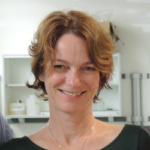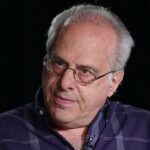Niger Resists In The Crosshairs Of Sanctions And Climate Catastrophe
 12-05-2024 ~ Aboubakar Alassane of the West Africa Peoples Organization (WAPO) explains how Nigeriens are enduring the consequences of unprecedented floods that have devastated their economy already crippled by sanctions.
12-05-2024 ~ Aboubakar Alassane of the West Africa Peoples Organization (WAPO) explains how Nigeriens are enduring the consequences of unprecedented floods that have devastated their economy already crippled by sanctions.
In the aftermath of the devastation left behind in the wake of unprecedented floods, Nigeriens are rebuilding their livelihoods and economy with the help of several relief measures instituted by the government to drastically cut prices of essential commodities and services.
The Sahel-wide flooding between June and October of 2024 has exacted a particularly high toll on the people of Niger, destroying crops, cattle, houses, and infrastructure in one of the world’s poorest countries. The country’s economy had already been strangled by seven-month-long sanctions.
By late September, at least 339 were killed, many more injured, and 1.1 million people displaced by the floods caused by unprecedented rain. The storms affected almost 190,000 hectares of cultivated agricultural land in a country with one of the highest child malnutrition rates.
Maradi region, the agricultural hub of south-central Niger, was the worst affected, with “the equivalent of an entire month’s worth of rain falling in a day,” said Aboubakar Alassane, a member of the coordination council of West Africa Peoples Organization (WAPO).
Masses of livestock, one of the most important sources of foreign exchange in Niger, were washed away in the Agadez region in the Sahara desert in the central north of the country. This destroyed the sole livelihood of nomadic communities.
The floods have further eroded the food supply that had already been dwindling, with agricultural land and pastures shrinking due to deficit rainfall over the five years before this deluge.
This climate catastrophe took place as Niger was already suffering under the harsh sanctions imposed by the regional bloc Economic Community of West African States (ECOWAS). France egged on ECOWAS following the ouster of the regime of Mohamed Bazoum in Niger, perceived domestically as a puppet of the Western European country.
Mass protests against the military deployment and economic domination of Niger by its former colonizer culminated in a coup. This was led by the head of Bazoum’s presidential guard, General Abdourahamane Tchiani, removing Bazoum on July 26, 2023. A military government called the National Council for the Safeguard of the Homeland (CNSP) was formed.
Sanctions followed on July 30, without any notice period. State assets were frozen. A no-fly zone was imposed. The borders of this landlocked country were closed immediately. Even those trucks that had already cleared paperwork were halted at the borders. Between July 30 and October 31 of 2023, 42,037 tons of various goods, worth over $23 million, were prevented from crossing into Niger.
Alassane recounted that immediately after the sanctions were imposed, the price of a 25 kg bag of rice nearly doubled from 12,000 to 21,000 CFA Franc, a colonial currency through which France continues to exert monetary control over its former colonies in West Africa.
A 75 kg bag of corn, “which had never exceeded 23,000 CFA, was selling at 40,000. Millet prices rose similarly, with niébé beans reaching 47,000 CFA, up from 20,000-25,000 before sanctions. Within a week, people were forced to line up in long queues” to buy the limited supplies of food items that had to be rationed, he said.
The foreign market for onions was cut off. Onions are one of Niger’s main irrigated crops, over 90 percent of which used to be exported. Hundreds of thousands of farmers were unable to sell their produce. Many more who were involved in the agricultural supply chain and export industry lost their livelihoods. The government is still struggling to resolve the disputes that arose between farmers, transporters, and exporters due to the sudden inability to make payments.
Neighboring Nigeria, on which Niger depended for 70 percent of its electricity, cut off power in violation of the bilateral agreements. “Electricity was rationed to four hours per neighborhood in Niamey. Dosso and Tillabéri only had electricity for six to eight hours when the old thermal generators, purchased in the 1980s, did not break down,” he added. Students were not able to study after dark. Meanwhile, Nigerien uranium powered France’s nuclear plants.
Desperation and misery increased amongst the poorest as a consequence of the economic devastation caused by the sanctions, ostensibly imposed to “restore democracy.”
Sanctions Have Only Served to Consolidate Popular Support of the Military Government
Be it “Cuba, Russia, DPR Korea, Iraq, Iran, Venezuela, Libya, Mali, Burkina Faso, and now Niger,” sanctions have always been imposed to make the people suffer “to turn them against their governments.” However, like in all these countries, it has “had the opposite effect,” maintains Alassane.
In the immediate aftermath of the coup removing Bazoum, Niger was divided between those who supported the coup and those who opposed it, he explained. It was amid this confrontation tearing Niger’s political fabric two ways, that the ECOWAS imposed sanctions and threatened war with the backing of France.
“We had never given anyone the mandate to kill us because a president was deposed by a coup,” Alassane said. He described what followed as a “patriotic surge” that united the country behind the CNSP. The government consolidated its popular support by ordering the French troops out of the country and demonstrating its commitment to implement the popular will.
France refused to withdraw its troops, provoking mass demonstrations outside its military base and embassy in Niamey. “The march amid the pouring rain on September 2, 2023, was an unprecedented display of popular strength in the history of Niger,” Alassane said. “Some even say that the proclamation of the country’s independence did not draw as large a crowd proportionally to the population.”
Later that month, neighboring Mali and Burkina Faso vowed to defend Niger if attacked. They had also suffered sanctions after similar popularly supported coups in recent years removed French-backed regimes and forced French troops out of the two countries. The trio came together to form the Alliance of Sahel States (AES).
ECOWAS, on the other hand, was a divided bloc, with its member states facing domestic opposition to the war from popular movements and opposition parties. France announced its retreat in late September of 2023 and completed the withdrawal of its troops by the end of the year.
In January 2024, the AES states announced their decision to withdraw from ECOWAS, threatening to halve its geographical expanse and disrupt the 15-member bloc’s trade and service flows worth almost $150 million annually. Amid this existential crisis looming over ECOWAS, its leaders met in late February and lifted the economic sanctions “on purely humanitarian grounds.”
However, “we still feel the effects,” Alassane said. With no confidence in the economy, which suffered missed deadlines for payments due to a freeze on transactions due to sanctions, “businesses are closing one after another.”
“Spare parts for vehicles and other mechanical equipment are slow to arrive. We are forced to repair using second-hand parts, which are often defective. The automobile fleet, which is essential for a landlocked country, is shrinking more and more. Every day, we see people struggling with old broken vehicles.”
Niger relies on the port of Cotonou in Benin for most of its imports of machines, spare parts, equipment, and food essentials, while exporting cash crops, uranium, and other minerals. Although the sanctions imposing border closure were lifted, Alassane said that the CNSP has been forced to keep the border closed from Niger’s side due to threats of terror attacks.
The official reasons stated by France for stationing its troops in its former colonies in this region was to fight these terror groups it had helped spawn across the Sahel with its participation in the war destroying Libya. During its nearly decade-long troop deployment, terror attacks only increased.
After being compelled to withdraw, France is accused of aiding these terror groups to destabilize AES states. “France has set up new military bases on the Beninese side of the border to train terrorists to carry out attacks on Niger and Burkina Faso,” Alassane said, explaining Niger’s compulsion to close the Beninese border despite consequent shortages.
Already reeling under the pressure of this economic crisis, the Nigerien people were additionally hit by the country-wide floods this monsoon. Although floods in this season are common in the region, the scale of devastation left in its wake this year is “unprecedented.”
Relief Measures
The CNSP has taken several measures to provide relief, including “a 50 percent reduction in the cost of medical procedures, examinations, and other services in public hospitals and health centers,” Alassane said. To increase domestic food availability, the CNSP has banned exports of cereals and pulses outside the AES countries.
Despite being heavily reliant on imports for its own food needs, “more than 50 percent of the harvest were exported to Nigeria” over the last few years because farmers could not find remunerative prices in the local market, he explained.
To mitigate this problem, the CNSP has launched a campaign to provide remuneration to the farmers by purchasing their produce above the market price, while making it available for the domestic consumers at a subsidized rate.
Eighty percent of the farming is done on high lands that escaped the devastating impact of the floods, Alassane added. In fact, the yield has been “excellent” due to above-average rain. The government is prioritizing securing this harvest. All these measures have “drastically” dropped the prices of cereals, he said. As of November 2024, the price of a 75 kg sack of millet was down by about 45 percent since July.
With the price of cement slashed by 50 percent through a waiver on certain taxes on the commodity and exemption of its inputs from taxation, “new construction projects are visible in capital Niamey and other main cities,” Alassane said.
Despite all these travails, the Nigeriens have endured in the crosshairs of climate catastrophe and sanctions. At no point did these issues undermine popular support for the CNSP, Alassane insists. “As proof” he points out that “each time the CNSP announces the holding of the National Consultative Council” under the pressure of the ECOWAS, France, and their Western allies, it has been forced to backtrack due to popular opposition.
This council, he added, “is set up every time there is a coup d’état to declare” that the military is only ruling as a “transitional government” whose decisions will be reviewed by the council until a new constitution is drafted and power ceded to a civilian government after an election. Mali and Burkina Faso have constituted such councils.
However, Nigeriens do not want this council. Every time there has been a coup in the past, the council has served as “a door for Western imperialism” to intervene, be it through NGOs or other blocs of civil society. This ensures that another French puppet takes power when the transitional period comes to a close, Alassane explained.
By Pavan Kulkarni
Author Bio: This article was produced by Peoples Dispatch / Globetrotter News Service. Pavan Kulkarni is a journalist with Peoples Dispatch.
Source: Peoples Dispatch / Globetrotter News Service
 12-03-2024 ~ Switching to organic products is an easy way to eat healthier and support the environment.
12-03-2024 ~ Switching to organic products is an easy way to eat healthier and support the environment.


